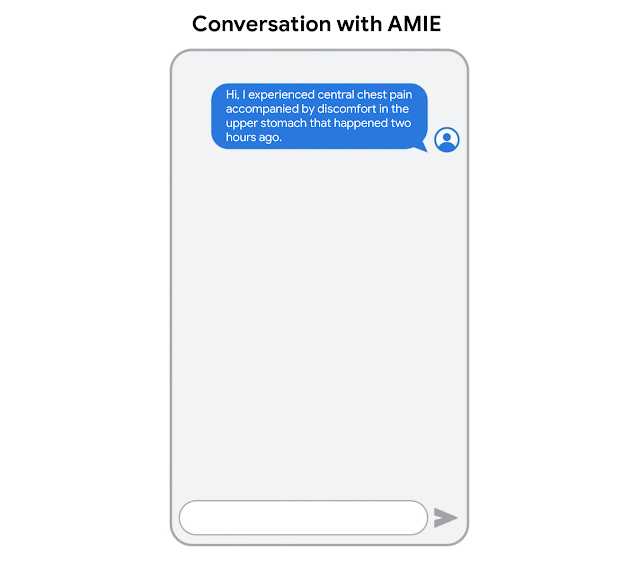
Google researchers have shared a preprint of their latest research introducing AMIE (Articulate Medical Intelligence Explorer), an AI system designed to have natural conversations to gather medical information and provide diagnostic suggestions. The system aims to approximate a clinician's expertise in patient dialogues.

AMIE is a large language model, trained on real-world medical datasets as well as a novel self-play simulation environment in order to address the limitations of existing real-world datasets. This comprehensive approach ensured that AMIE's training covered a wide range of medical conditions and scenarios, with a focus on refining its diagnostic accuracy and conversational quality. This allows the system to improve its conversational and reasoning abilities across diverse conditions and scenarios. AMIE asks pertinent questions to narrow differential diagnoses, while balancing clinical communication best practices like empathy.

To evaluate AMIE's capabilities, Google conducted a virtual study pitting the system against board-certified primary care physicians in a series of text-based consultations with actors playing patient roles. The setup, resembling an objective structured clinical examination, provided a standardized and objective assessment of AMIE's performance. Impressively, AMIE demonstrated stronger diagnostic accuracy and outperformed doctors on most metrics of consultation quality from both physician and patient perspectives.
Keep in mind that AMIE is still experimental research and not a product. The research team acknowledges several limitations in the current study. For instance, the text-chat interface used in the study, while enabling large-scale AI-patient interactions, is not representative of typical clinical practice. Furthermore, transitioning AMIE from a research prototype to a practical tool in real-world healthcare settings will require extensive further research, with a focus on health equity, privacy, and reliability.
However, technology like AMIE shows the future potential for AI to increase healthcare availability and quality. With further development, such systems may prove useful in complementing overburdened physicians.
This preliminary study reveals promising headway in embedding nuanced clinical qualities like dynamic dialogues and empathy into AI. AMIE provides a springboard for further research into assistive health technologies that align with clinician values.

